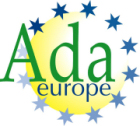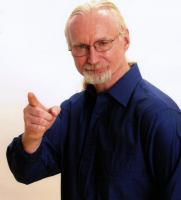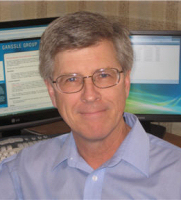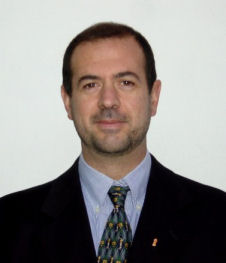Tuesday, June 11, 2013, Conference Room
08:00 |
|
Registration open |
||
09:00 |
|
Opening Session |
||
|
|
|
||
09:15 – 10:15 |
|
Keynote 1 (Chair: N.N.)
Bruce Powel Douglass, Chief Evangelist IBM Rational: Model-based Ada development for DO-178B/C and the application of agile methods.
Bruce Powel Douglass is the Chief Evangelist for IBM Rational® with over 30 years specializing in the development of real-time and embedded systems and software. He is the author of the IBM Rational Harmony™ for Embedded RealTime Development (Harmony/ERT) process. He and Peter Hoffmann developed the original Harmony process that combined systems and software engineering with a well specified hand-off for a smooth, integrated workflow. Bruce is a well known speaker and member of the Advisory board of the Embedded Systems Conference and UML World Conference. He is also an invited speaker at many other conferences, such as Embedded World (Germany), Embedded Systems (Japan), SET (Switzerland), OOP (Germany), and Software Development. The special “Bruce’s night” at the Embedded World show has been popular for many years. Bruce developed the IBM Rational Rhapsody® DoDAF profile that currently ships with the product as well as a Safety Analysis Profile that allows engineers to include Fault Tree Analysis (FTA) diagrams, Fault Means and Effect Analysis (FMEA), and hazard analysis in their models. Bruce’s key areas of expertise include agile development and agile in systems engineering. |
|
|
|
|
Coffee
Break
|
||
|
|
Session
Multicore and Distributed Systems (Chair: N.N.)
|
||
10:45 – 11:20 |
|
Hector Perez and J. Javier Gutiérrez (Universidad de Cantabria, Spain): |
||
11:20 – 11:55 |
|
Stephen Michell, Brad Moore, and Luis Miguel
Pinho |
||
11:55 – 12:30 |
|
J. Reinier van Kampenhout and Robert Hilbrich (Fraunhofer FOKUS, Germany): Model-Based Deployment of Mission-Critical
Spacecraft Applications on Multicore Processors
|
||
|
|
Lunch
|
||
|
|
Session
Industrial Experience 1 (Chair: N.N.)
|
||
14:00 – 14:30 |
|
Jacob Sparre Andersen, Kim Rostgaard
Christensen and Thomas Løcke (AdaHeads K/S, Denmark): |
||
14:30 – 15:00 |
|
Daniel Bigelow (Bigelow Informatics, Switzerland): |
||
15:00 – 16:00 |
|
Special Session: Ada 2012 |
||
|
Introducing
Ada 2012 (Tucker Taft)
|
|||
|
|
Coffee
Break
|
||
|
|
Session Ada and Spark (Chair: N.N.) |
Products
(Vendor Session) |
|
16:45 – 17:20 |
|
Carl Brandon and Peter Chapin |
(to be announced) |
|
17:20 – 17:55 |
|
Thomas Quinot and Eric Botcazou (AdaCore, France): |
||
|
|
|
|
|
18:00 – 19:00 |
|
Ada Europe General Assembly |
||
19:00
|
|
Welcome
Party
|
||
Wednesday, June 12, 2013
09:00 – 10:00 |
|
Keynote 2 (Chair: N.N.)
Jack G. Ganssle, The Ganssle Group: The Way Ahead in Software Engineering: Replacing Artists With Disciplined Grownups.
Jack Ganssle has written over 700 articles and six books about embedded systems, as well as a book about his sailing fiascos. He started developing embedded systems in the early 1970s using the 8008. He’s started and sold three electronics companies, including one of the bigger embedded tool businesses. He’s developed or managed over 100 embedded products, from deep-sea navigation gear to the White House security system… and one instrument that analyzed cow poop! He was a member of NASA’s Super Problem Resolution Team, a group of outside experts formed to advise NASA in the wake of Space Shuttle Columbia’s demise, and serves on the boards of several high-tech companies. Jack has appeared as an embedded systems expert on the History Channel’s Modern Marvels, 2004, and one of these days will get around to watching it. He has presented over 100 papers at conferences on five continents. |
|
|
|
|
Coffee
Break
|
||
|
|
Session
Dependability (Chair N.N.)
|
||
10:45 – 11:20 |
|
Barry Fagin and Martin Carlisle (US Air Force Academy, USA): |
||
11:20 – 11:55 |
|
Irene Bicchierai, Giacomo Bucci, Carlo Nocentini and Enrico Vicario (Università di Firenze, Italy): |
||
11:55 – 12:30 |
|
Xiaozhen Xue and Akbar Siami Namin (Texas Tech University, USA): |
||
|
|
Lunch
|
||
|
|
Products
(Vendor Session)
|
||
14:00 – 15:45 |
|
(to
be announced)
|
||
|
|
Coffee
Break
|
||
|
|
Session
Industrial Experience 2 (Chair: N.N.)
|
|
|
16:30 – 17:00 |
|
Mark Lorenzen (Terma A/S, Denmark): |
||
17:00 – 17:30 |
|
David Dhenaux and David Sauvage (SmartSide, France, AdaLabs Ltd., Mauritius): |
||
17:30 – 18:00 |
|
Alexander Senier (secunet Security Networks AG, Germany): |
||
|
|
|
||
19:00
|
|
Conference
Dinner at the Botanical Garden
On
Wednesday, we follow the trails in the Botanic Garden and the “Großes
Glashaus” of Berlin-Dahlem, regarded as one of the three most eminent
institutions of its kind in Europe. Walk around and get a small impression of
the 22000 plants from all over the world, before we sit down for the
conference dinner, enjoying the conversations, the food, the wine, and the
greenery around us. The Botanic Garden is in walking distance to the hotel.
|
|
|
Thursday, June 13, 2013
09:00 – 10:00 |
|
Keynote 3 (Chair: N.N.)
Giorgio C. Buttazzo: Research Challenges in Exploiting Multi-Core Platforms for Real-Time Applications
Giorgio Buttazzo is Full Professor of Computer Engineering at the Scuola Superiore Sant'Anna of Pisa. He graduated in Electronic Engineering at the University of Pisa in 1985, received a Master in Computer Science at the University of Pennsylvania in 1987, and a Ph.D. in Computer Engineering at the Scuola Superiore Sant'Anna of Pisa in 1991. He has been Program Chair and General Chair of the major international conferences on real-time systems. He is Editor-in-Chief of the Journal of Real-Time Systems (Springer) and Associate Editor of the IEEE Transactions on Industrial Informatics. He is Chair of the IEEE Technical Committee on Real-Time Systems and IEEE Fellow "for contributions to dynamic scheduling algorithms in real-time systems". He has authored 6 books on real-time systems and over 200 papers in the field of real-time systems, robotics, and neural networks. |
|
|
|
|
Coffee Break |
||
|
|
Panel:
How to Use the Heap in Real-Time Systems |
||
10:45 – 12:30 |
|
Panelists:
Tom Grosman (Atego Systems, Inc., USA) on Disciplined Use of Scope-Allocated Objects James Hunt (aicas GmbH, Germany) on Dynamic Memory Management in Real-Time, Safety-Critical System S. Tucker Taft (AdaCore, USA) on Region-Based Storage Management for Parallel Programming | ||
|
|
Lunch
|
||
|
|
Real-Time Systems (Chair: N.N.) |
||
14:00 – 14:35
|
|
Emilio Salazar, Alejandro Alonso, Miguel A. de Miguel, and Juan A. de La Puente |
||
14:35 – 15:10 |
|
Andrea Baldovin, Enrico Mezzetti and Tullio Vardanega (University of Padua, Italy): |
||
15:10 – 15:45 |
|
Ismael Lafoz, Esteban Asensio, Andrew Coombes and Julian Navas |
||
|
|
Coffee
Break
|
||
|
|
Closing Session |
|
|
16:30 – 17:00 |
|
Best Paper Award Best Presentation Award |
||
|
|
|
|
|
 |
The conference is supported and sponsored by
Ada-Europe, Ada Deutschland e.V., Gesellschaft für Informatik e.V., Karlsruhe Institute of Technology and in cooperation with ACM SIGAda, SIGBED, SIGPLAN. |
 |
April 25, 2013



